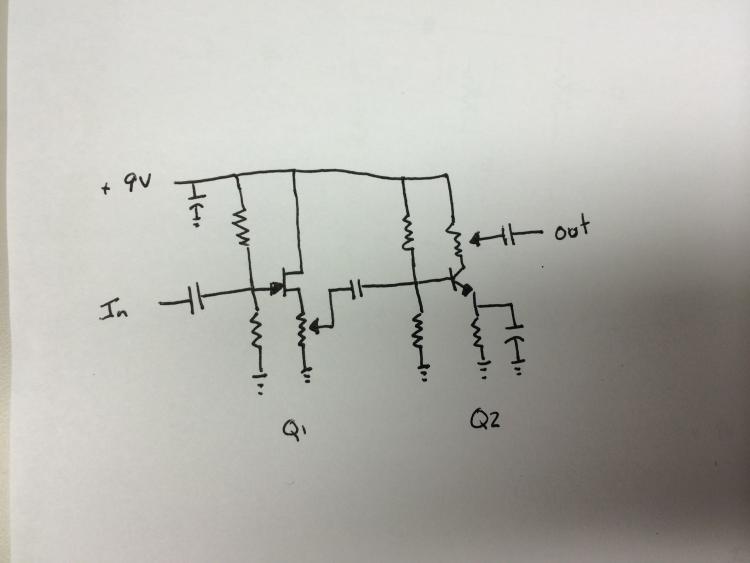So I've been doing a lot if reading on buffers and impedance lately mostly because there's been a lot of talk about when to use one, and if you really need one, etc. this got me thinking, which is never good.
So some of you may remember an idea I had a long time ago all out having two boosters, one FET one Ge, wired together with a trimmer to control the output of the first into the input of the second, ie a grit control. Which was due to my want of something similar to the phat phuck from wren and cuff. Now, in all my research I've come across the fact that the phat phuck is actually a buffer into a Ge booster, that has a grit control from a trimmer.
Not sure if anyone is following where I'm going with all this, but here's my thought. If you can control the impedance of a buffer before another effect, like a booster or OD, will more or less impedance cause a change in the second pedal? Now, to take this even further, we all know some effect just hate being in a certain order, ex wah into fuzzface = oscillations out the ass, but a buffer will suck the life out of the fuzzface because it fucks up the impedance the fuzzface wants and needs to sound like we want.
Enter the original idea of controlling impedance, specifically output impedance. I've been thinking about the idea of variable impedance into a booster while watching my students take the standardized test today and came up with 2 ideas. Figured some of you may find this interesting and be able to figure out not only will this work, but would this be a worthwhile endeavor.
Idea 1 - buffer into LPB-1 type booster

Idea 2 - buffer into rangemaster type booster

If I'm right in how to control the output impedance, then that part of the effect from the schematics above can be isolated and used separately, which could help in the wah into fuzzface example. You can set the output impedance to match the effect it's going into to make it right, not just set in stone.
So? What do you think?